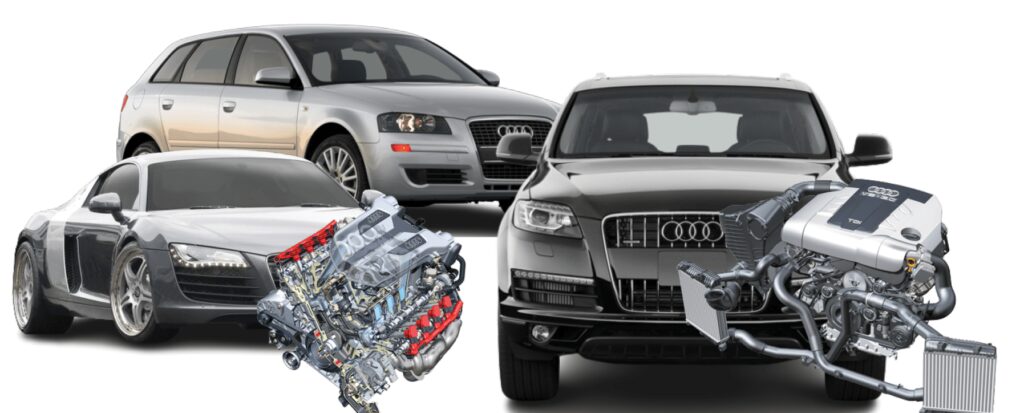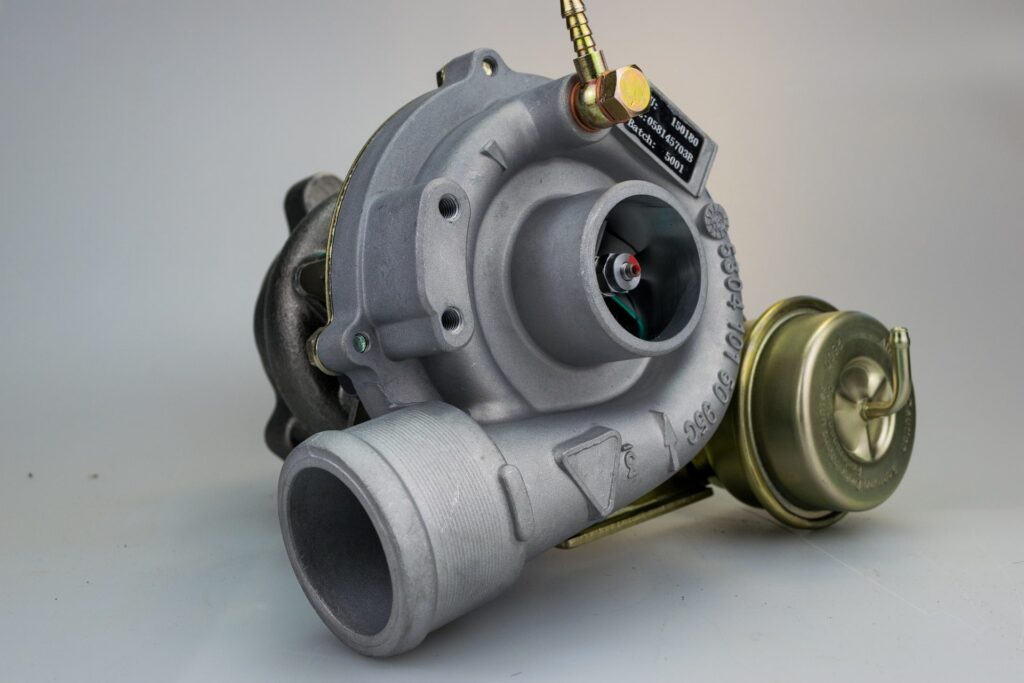Audi Engine Problems: A Comprehensive Guide
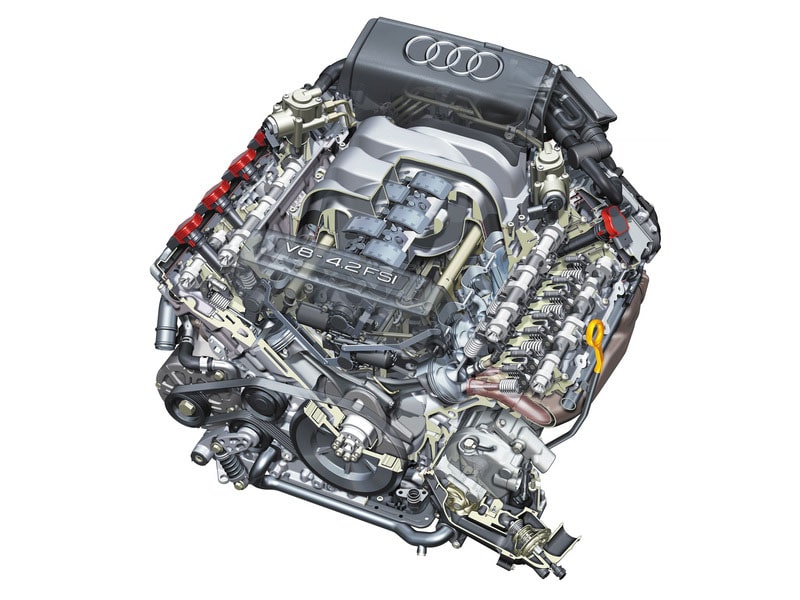
Let’s discuss Audi engine problems.
A simple rule in motoring says – if you are aware of car engine problems, you are more likely to have a better experience by either resolving or preventing them. That summarizes the main point of this post.
Audi, our subject, is a symbol of distinction and elegance. Depending on the vehicle, the engines provide an array of experiences. From lightning-fast and nimble engines to less-than-stellar engines. We explored the best and worst of Audi (see links below).
Even the best-engineered vehicles, though, can develop problems over time. In this detailed guide, we will look at some of the most common Audi engine problems that owners may face.
Audi Engine Problems - Overheating Issues
Overheating is a prevalent problem with Audi engines. Actually, this is one of the most common Audi A8 problems. It can be caused by malfunctioning radiators or coolant leaks. Among other things.
Signs of Engine Overheating
- If the gauge exceeds the red zone, it means the engine is operating hotter than usual. If the car is in motion, slow down and pull over, allowing it to idle for a few minutes before turning off the engine.
- Warning lights or messages – Modern Audi vehicles are equipped with advanced onboard diagnostic systems that can detect engine abnormalities. If the system detects engine overheating, it may trigger warning lights or display warning messages on the instrument cluster.
- Engine misfires or reduced performance might result from an overheating engine. Power loss, slow acceleration, or poor engine operation are all possible symptoms.
Causes of Engine Overheating
- Malfunctioning Thermostat – If the thermostat gets stuck in the closed position, it can prevent coolant circulation and lead to engine overheating. Conversely, if the thermostat is stuck in the open position, the engine may take longer to reach the desired temperature, resulting in reduced fuel efficiency and poor performance.
- Faulty Radiator – A faulty radiator, such as a clogged or leaking one, can impede the cooling process and cause the engine to overheat. Common causes of radiator issues include mineral deposits, corrosion, or physical damage.
- Coolant Leak – A coolant leak can occur due to a faulty hose, water pump, radiator, or gasket. When coolant levels drop, the engine loses its ability to dissipate heat effectively, leading to overheating. It is essential to inspect the coolant system regularly and address any leaks promptly.
- Insufficient coolant or improper coolant mixture – Using the wrong type of coolant or an improper coolant-to-water ratio can affect the cooling efficiency of the engine. It is important to use the recommended coolant specified by Audi and maintain the correct mixture. Insufficient coolant levels or an improper mixture can result in overheating.
- Faulty cooling fan – Common causes of cooling fan issues include a faulty fan motor, damaged fan blades, or a malfunctioning fan control module.
Solutions for Engine Overheating
1. Pull over and turn off the engine – If you notice any signs of engine overheating, it is crucial to pull over to a safe location as soon as possible. Turn off the engine and allow it to cool down before taking any further action.
2. Check the coolant level – Once the engine has cooled down, check the coolant level in the reservoir. If it is low, you can add more coolant. However, it is important to identify and address the cause of the coolant loss to prevent future overheating.
3. Inspect for coolant leaks – Inspect the coolant system for any visible signs of leaks, such as puddles of coolant under the vehicle or wet spots on hoses and connections. If you find a leak, it is advisable to have it repaired by a qualified mechanic.
4. Verify the functionality of the thermostat – If the engine overheating issue persists, it may be necessary to inspect and test the thermostat. A malfunctioning thermostat should be replaced to ensure proper coolant flow.
5. Check the radiator and cooling fan – Inspect the radiator for any signs of damage, corrosion, or clogging. Clean or repair the radiator as necessary. Additionally, verify the functionality of the cooling fan. If it is not operating correctly, it may need to be repaired or replaced.
6. Seek professional assistance – If the engine continues to overheat or if you are unsure about diagnosing and fixing the issue yourself, it is recommended to seek professional assistance from a qualified mechanic.
Audi Engine Problems - Oil Leaks
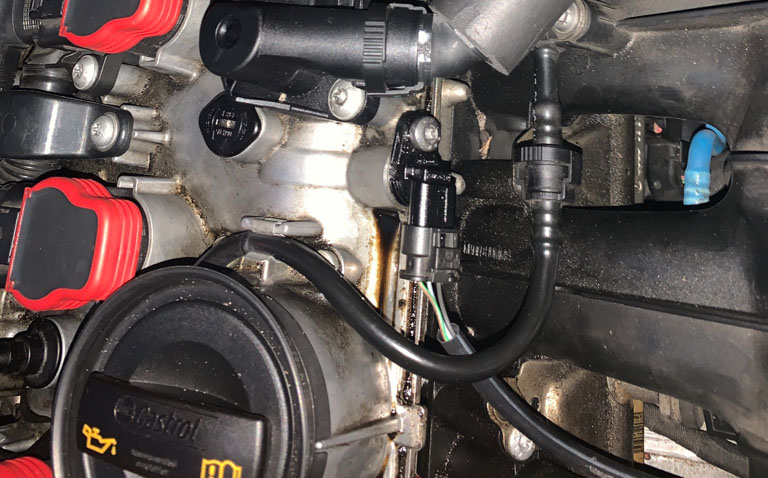
Oil leaks are another prevalent problem in Audi engines. These leaks can occur due to issues with gaskets, seals, or other engine components. If you notice oil spots on the ground after parking your Audi or detect a burning smell while driving, it may indicate an oil leak. The leaks could also be as a result of:-
- Faulty gaskets and seals – Gaskets and seals in an Audi engine play a crucial role in preventing oil leaks. Over time, these components can deteriorate or develop cracks, leading to oil leakage. Common areas prone to gasket and seal failures include the valve cover gasket, oil pan gasket, and camshaft seals.
- Worn or damaged oil filter housing – The oil filter housing in an Audi engine is responsible for housing the oil filter and regulating oil flow. If the oil filter housing becomes worn or damaged, it can result in oil leaks. This is particularly common in older Audi models or those with high mileage.
- Loose or faulty drain plug – During an oil change, the drain plug is removed to drain the old oil from the engine. If the drain plug is not properly tightened or if the gasket on the drain plug is worn or damaged, it can lead to oil leaks. It is important to ensure that the drain plug is securely tightened during every oil change.
- Cracked or damaged engine components – In some cases, engine components such as the oil pan or cylinder head can develop cracks or damage, leading to oil leaks. This can occur due to impact from road debris, improper maintenance, or engine overheating.
- Excessive oil pressure – Excessive oil pressure can cause oil leaks in certain areas of the engine. This can be caused by a malfunctioning oil pressure relief valve, clogged oil passages, or a faulty oil pump. High oil pressure can put stress on gaskets and seals, leading to oil leakage.
Signs of Engine Oil Leaks
In most cases, oil leaks can be detected visually or simply by picking up strange smells. Look out for:-
- Oil spots under the vehicle
If you consistently notice oil spots where you park your Audi, it indicates an oil leak that needs attention.
- Burning smell
When oil comes into contact with hot engine components, it can produce a distinct burnt odor.
- Low oil levels
If you find yourself needing to top up the engine oil more frequently than usual, it may indicate an oil leak. Monitor the oil level regularly to ensure it stays within the recommended range.
- Engine performance issues
Engine performance can be affected by an oil leak, especially if the leak is significant. You may experience reduced power, rough idling, or a drop in fuel efficiency. In severe cases, an oil leak can even lead to engine misfires or complete engine failure.
Solutions for Engine Oil Leaks
- The first step in addressing an oil leak is to identify its source. Thoroughly inspect the engine, paying close attention to areas such as the valve cover, oil pan, and oil filter housing. Look for signs of oil residue or wetness around gaskets, seals, and engine components.
- Replace faulty gaskets, seals, or components. If the source of the oil leak is identified as a faulty gasket, seal, or component, it is necessary to replace the affected part. Consult with a qualified mechanic or refer to your Audi’s service manual for the correct replacement procedure.
- If the oil leak is traced back to a loose or faulty drain plug, it can usually be resolved by tightening the plug or replacing the gasket. Be sure to use the correct torque specifications when tightening the drain plug to prevent future leaks.
- If the oil leak is caused by excessive oil pressure, it is important to diagnose and address the underlying issue. This may involve inspecting and repairing or replacing components such as the oil pressure relief valve, and oil pump, or clearing any clogged oil passages.
- To prevent oil leaks, it is crucial to follow the recommended maintenance schedule for your Audi. Regular oil changes using the correct type and grade of oil, along with inspections of gaskets and seals, can help detect and address potential issues before they escalate.
One of the most common Audi A7 problems is oil leaks. This guide can help A7 owners quickly diagnose oil leak issues.
Audi Engine Problems - Carbon Buildup
Modern Audi engines use direct fuel injection technology, which can result in carbon buildup on the intake valves. This is a common Audi 3.0 engine problem. This buildup can restrict airflow and impact engine performance.
Regular maintenance, such as carbon cleaning, is essential to prevent excessive carbon deposits and ensure optimal engine operation.
Causes of Carbon Buildup
- Direct injection system – Unlike traditional port fuel injection systems that spray fuel onto the intake valves, direct injection injects fuel directly into the combustion chamber. This bypasses the intake valves, leading to a lack of fuel detergent that can clean the valves and prevent carbon buildup.
- Low-Quality fuel –Using low-quality or contaminated fuel can contribute to carbon buildup in the engine. Impurities in the fuel can leave behind deposits on the intake valves, combustion chambers, and other engine components, leading to carbon buildup over time.
- Short trips and stop-and-go driving conditions can exacerbate carbon buildup. These conditions prevent the engine from reaching optimal operating temperatures for an extended period, which can contribute to the formation of carbon deposits.
- Engine oil vapors can also contribute to carbon buildup. If the PCV (Positive Crankcase Ventilation) system, which vents crankcase gases back into the intake manifold, is not functioning correctly, excessive oil vapors can accumulate on the intake valves and contribute to carbon deposits.
Signs of Carbon Buildup
- Loss of engine power and performance – One of the primary signs of carbon buildup is a noticeable loss of engine power and performance. The carbon deposits can hinder the proper flow of air and fuel in the combustion chamber, resulting in reduced horsepower, sluggish acceleration, and decreased overall performance.
- Rough idle and misfires – Carbon buildup on the intake valves can disrupt the smooth operation of the engine at idle. You may experience a rough or unstable idle, accompanied by engine misfires or hesitation.
- Increased fuel consumption – As carbon buildup restricts airflow and affects fuel delivery, you may notice increased fuel consumption. The engine may require more fuel to compensate for the decreased efficiency caused by carbon deposits.
- Check engine light – In some cases, carbon buildup can trigger the check engine light to illuminate. The engine control unit (ECU) detects abnormal operating conditions due to carbon buildup and generates a fault code that triggers the check engine light.
Solutions for Carbon Buildup
- Regular maintenance is crucial in preventing and addressing carbon buildup. Audi recommends following the recommended service intervals and using high-quality fuel and engine oil. Additionally, periodic intake valve cleaning can help remove carbon deposits and restore engine performance.
- Using fuel additives designed to clean the intake valves and combustion chambers can help prevent and remove carbon buildup. These additives contain detergents and cleaners that break down carbon deposits and improve engine efficiency.
- In severe cases of carbon buildup, a method called walnut blasting can be employed. Walnut blasting involves using crushed walnut shells to physically remove carbon deposits from the intake valves. This procedure is typically performed by trained technicians and can significantly improve engine performance.
- Maintaining the PCV system is essential to minimize oil vapor buildup and subsequent carbon deposits. Regular inspection and replacement of PCV valves and hoses can help ensure proper ventilation and reduce the likelihood of carbon buildup.
Audi Engine Problems - Fuel Pump Issues
Faulty fuel pumps can cause problems with fuel delivery, leading to engine misfires, poor performance, or even complete engine failure.
For instance – the high-pressure fuel pump in the Audi TFSI is a common problem.
Fuel pumps can develop issues over time.
Causes of fuel pump issues
- Wear and tear – As with any mechanical component, the fuel pump can experience wear and tear over time. Continuous use, exposure to heat, and contaminants in the fuel can contribute to the degradation of the fuel pump’s performance and eventual failure.
- Fuel contamination – Contaminated fuel, such as dirt, debris, or water, can cause damage to the fuel pump. When these contaminants enter the fuel system, they can clog the fuel pump or damage its internal components, leading to fuel delivery issues.
- Electrical problems – The fuel pump relies on an electrical connection to operate. Issues such as a faulty wiring connection, a blown fuse, or a malfunctioning fuel pump relay can disrupt the electrical supply to the fuel pump, resulting in fuel delivery problems.
- Overheating – Excessive heat can affect the performance of the fuel pump. When the fuel pump is exposed to high temperatures for extended periods, it can lead to overheating, causing the pump to operate inefficiently or fail altogether.
Signs of Fuel Pump Issues
- Engine misfires or stalling – One of the common signs of a fuel pump problem is engine misfiring or stalling. If the fuel pump is unable to supply an adequate amount of fuel to the engine, it can result in an uneven fuel-air mixture, leading to engine hesitation, misfires, or even engine stalling.
- Difficulty starting the engine – A failing fuel pump may cause difficulties in starting the engine. You may experience prolonged cranking or the engine failing to start altogether. This can indicate a weak fuel pump unable to provide sufficient fuel pressure for the engine to ignite.
- Sudden loss of power – If the fuel pump is malfunctioning or failing, you may notice a sudden loss of power while driving. The engine may struggle to maintain consistent power output, resulting in sluggish acceleration and a decrease in overall performance.
- Fuel odor – A strong fuel odor inside or around the vehicle could be a sign of a fuel pump issue. This may indicate a leak in the fuel pump or its associated components, leading to the smell of fuel.
Solutions for Fuel Pump Issues
- Diagnose the problem – If you suspect a fuel pump issue, it is crucial to have a qualified mechanic perform a thorough diagnosis. They can use diagnostic tools to test the fuel pump’s functionality, check fuel pressure, and inspect associated components for any faults.
- Replace the fuel pump – If the fuel pump is determined to be faulty, replacing it is often the most effective solution. A qualified mechanic can remove the old fuel pump and install a new one, ensuring proper fuel delivery to the engine.
- Clean or replace fuel filters – Fuel filters are designed to catch contaminants and prevent them from reaching the fuel pump. In some cases, a clogged or dirty fuel filter can put a strain on the fuel pump, leading to issues. Cleaning or replacing the fuel filters can help alleviate fuel pump problems.
- Address electrical issues – If the fuel pump issue is related to electrical problems, such as a faulty wiring connection or fuel pump relay, these issues should be addressed. Repairing or replacing the electrical components can restore the proper electrical supply to the fuel pump.
Audi Engine Problems - Ignition Coil Failure
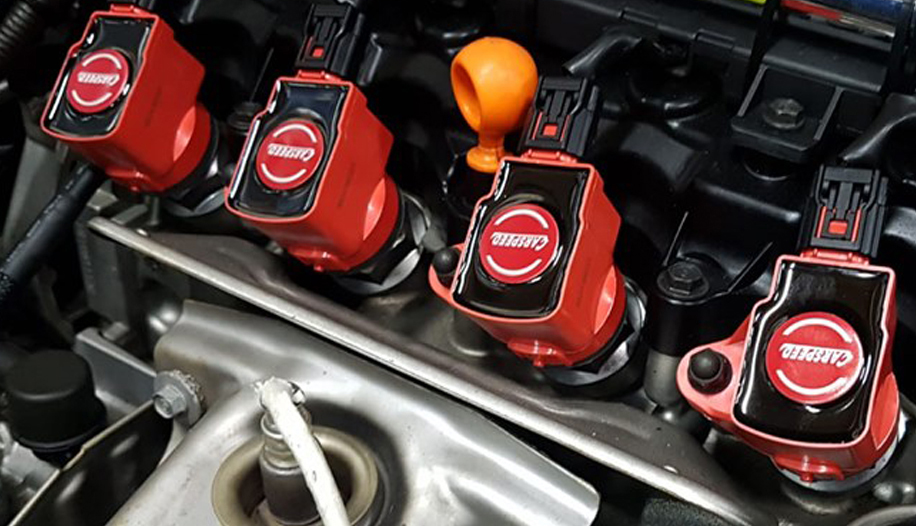
The ignition coil is responsible for transforming the low voltage from the battery into the high voltage needed to create a spark in the spark plugs, igniting the air-fuel mixture. However, ignition coil failure can occur, leading to various performance issues.
Causes of Ignition Coil Failure
- Aging – Ignition coils, like other electrical components, can deteriorate over time due to age and wear. The constant exposure to high voltage and heat can cause the coil’s internal components to weaken or fail, leading to ignition coil failure.
- Overheating – Excessive heat is a common cause of ignition coil failure. The ignition coil operates in a high-temperature environment, and if it becomes overheated due to external factors like engine overheating, it can lead to internal damage and failure.
- Voltage spikes – Voltage spikes can occur in the electrical system, causing a sudden surge of high voltage. These spikes can overwhelm the ignition coil, leading to its failure. Voltage spikes can be caused by faulty wiring, a malfunctioning alternator, or other electrical issues.
- Contaminants and moisture – Contaminants, such as dirt, debris, or moisture, can affect the performance and lifespan of ignition coils. If these substances infiltrate the ignition coil, they can cause short circuits, corrosion, and other damage that can lead to failure.
Signs of Ignition Coil Failure
- Engine misfires – Misfires occur when the spark plugs fail to ignite the air-fuel mixture properly. If one or more ignition coils are faulty, the affected cylinders may experience inconsistent or weak sparks, leading to engine misfires and a decrease in performance.
- Rough idle – If the ignition coils are unable to provide a consistent spark, the engine may struggle to maintain a smooth idle, resulting in a rough-running engine.
- Decreased fuel efficiency – When the ignition coils are not functioning properly, the combustion process is inefficient, leading to incomplete fuel combustion and wasted fuel. This can result in lower fuel mileage and increased fuel consumption.
- Difficulty starting the engine – You may experience prolonged cranking or the engine failing to start altogether. This is due to the insufficient spark being generated by the faulty ignition coil, preventing the combustion process from initiating.
Solutions for Ignition Coil Failure
- Diagnose and replace faulty ignition coils – It is important to have a qualified mechanic diagnose the problem. They can use diagnostic tools to identify which ignition coil or coils are faulty and replace them with new ones. It is recommended to replace all the ignition coils at once to ensure consistent performance.
- Address underlying causes – If the ignition coil failure was caused by external factors such as overheating or voltage spikes, it is crucial to address these underlying causes. Repairing any overheating issues, fixing faulty wiring, or addressing electrical system problems can help prevent future ignition coil failures.
- Regular maintenance – Performing regular maintenance on the ignition system can help prolong the lifespan of the ignition coils. This includes inspecting the coils for signs of wear or damage, cleaning or replacing spark plugs as needed, and ensuring proper electrical connections.
- Quality replacement parts – When replacing ignition coils, it is important to use high-quality replacement parts. OEM (Original Equipment Manufacturer) or reputable aftermarket ignition coils can provide better reliability and performance compared to inferior-quality alternatives.
Audi Engine Problems - Frequently Asked Questions
Q: How often should I replace the timing belt in my Audi?
A: The timing belt replacement interval can vary depending on the specific Audi model and engine. It is generally recommended to replace the timing belt between 60,000 and 100,000 miles or every 5 to 7 years. Consult your Audi owner’s manual or speak to a qualified mechanic for the manufacturer’s recommended maintenance schedule for your particular vehicle.
Q: Can I continue driving my Audi with an oil leak?
A: While it may be tempting to ignore a small oil leak, it is not advisable to continue driving your Audi with this issue. Oil is essential for lubricating and cooling the engine components, and a significant leak can lead to engine damage if left unaddressed. It is best to have the oil leak diagnosed and repaired as soon as possible.
Our Top Picks
Audi engines to avoid
4 Reliable Audi Engines
We investigate the complex world of Audi engines to determine – Reliable Audi Engines.

